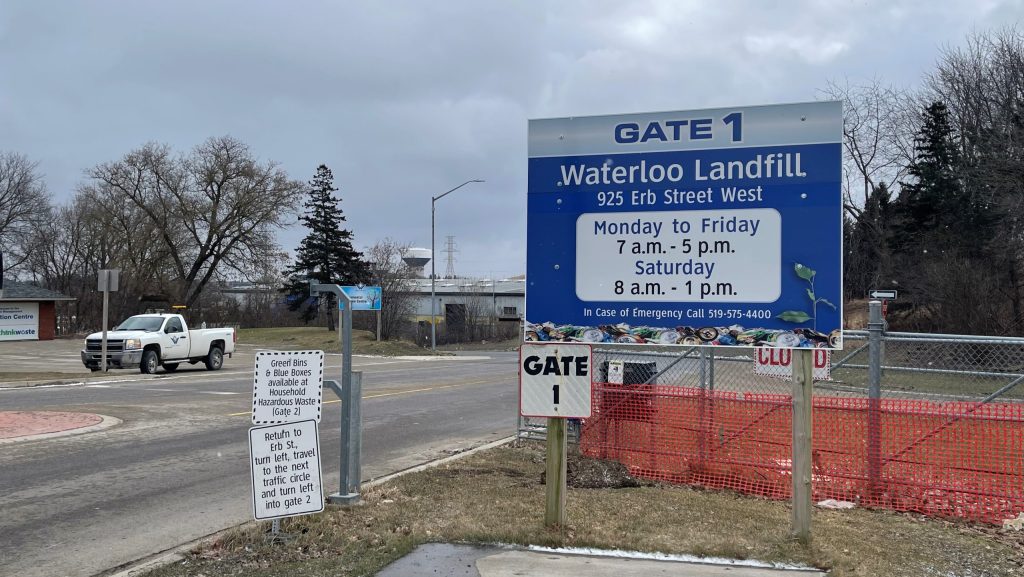Small but mighty: Waterloo Crossing Trek returns
Posted Feb 3, 2023 05:15:00 PM.
After a two-year hiatus, Tessa Reder, founder and organizer of the Waterloo Region Crossing trek, is happy to be back. As the aftermath of lockdowns, isolation, and cancelled plans wades, her passion for persuading action has been reignited. And not even the unforgiving winter days and frigid nights could threaten her determination.
“We trek to raise funds for homeless services and to stimulate a dialogue around the state of housing and homelessness in our community,” Reder said.
She admits that the grim winter forecast is the ideal environment for her 65-kilometre (km) hike across the region – for the trekkers, it will reveal some of the worst conditions one would face as a person experiencing homelessness in Canada.
And for the adventure racing World Series support crew member, who assisted the Canadian team in World's Toughest Race: Eco-Challenge Fiji (Amazon Prime Video), the challenge is part of her reward.
In its fifth year, the non-stop trek will take place on February 11, taking an average of 20 hours; although the team is smaller this year, the endeavour remains great.
“After the first trek, many people expressed interest in joining me. So I founded Waterloo Region Crossing as a not-for-profit organization and scaled the trek to a full-fledged community event. In 2019 and 2020, we had over 100 people sign up each year and make the journey,” she shared.
When COVID-19 began, the event “went extinct,” but it did not take her resolve. Instead, she reached out to a production crew. She started going through the footage from previous treks, creating a documentary film that was featured at four film festivals, including the Stockholm City Film Festival in Sweden and the North Dakota Human Rights Film Festival.
The documentary A Starting Point “examines the impacts of rapid development, the affordable housing crisis, and the community's potential to set an example as leaders [with] social compassion.”
Close to home
“[There are many] who are [currently] one paycheck away from, not having a roof over our heads, or [are] having to make that difficult decision between [getting] groceries or paying the bills,” Reder observed.
The tipping point is more significant than it's ever been.
“For example, more people than ever are using the Food Bank,” she added. “[Previously], tent cities were something that was kind of hidden near highway overpasses or behind industrial sites, and now they're very visible.”
According to the City of Kitchener's website, due to amplified homelessness in the region, “there are more encampments in public places within the city.” It is estimated that “around 1,000 people are currently experiencing homelessness across the region, including hundreds of people experiencing chronic homelessness.”
It takes a community
It is said that it takes a village. Reder, who once ran for Kitchener City Council (Ward 9), sees it as her role to speak up on behalf of those who seek the basic necessities. Her empathy towards individuals facing the debilitating realities of homelessness motivates her never to stop trekking (even on the coldest night of the year).
Since 2018, her annual event has raised over $115,000 for The Working Centre.
“This money was used to help construct transitional housing and a medical facility for citizens seeking to break the cycle of addiction.”
Contributing influences that impact homelessness numbers include access to affordable housing and support programs such as trauma recovery, the ability to find employment, and the opioid crisis. But the misconceptions surrounding homelessness are as damaging as the lack of accessible support. These fallacies, coupled with the greatest need the city has seen in some time, are what have reignited her determination to generate conversations that put a spotlight on poverty, hunger, and homelessness.
Support local
Although unofficial this year, the event aims to do everything it's done in the past five years. The group of trekkers consider themselves small but mighty. And as the saying goes, the comeback is always better than the setback. Reder shared that this year the focus will be to stimulate dialogue and build momentum for a full return in 2024.
“This trek is not an official event; so far, it's just a few friends and me,” she added. And Reder encourages anyone who wants to join her to reach out through her Canada Helps fundraising page.
“But it's important to be prepared. So, if you're planning to meet me and walk, please reach out if you need advice about your preparation, gear, and clothing.”
Is a 65 km non-stop trek attainable for all?
Reder said that “with any major undertaking,” she's learned that “the best way to accomplish it, and to attain your end goal, is to look at incremental goals.
“If you get to that point where you're at that mental wall, you just need to shut your brain down and just keep walking to get to that finish line. You have to tell yourself, 'I can get 10 steps further; anybody can walk 10 steps. And now I can walk 10 more steps.' So just do it until you get to the end.
“And wouldn't it be an amazing world if we got to the end of homelessness?
“I think if we tackle big problems in small pieces, eventually, you make you make some ground.”
This year, her goal is to raise $5,000. All funds raised will be once again donated to The Working Centre “to help build more units of affordable housing in the community.”
For those who wish to donate or watch as the adventure unfolds, she plans to set up a tracking system which will be added to her fundraising site.
“Stay tuned,” she concluded.








